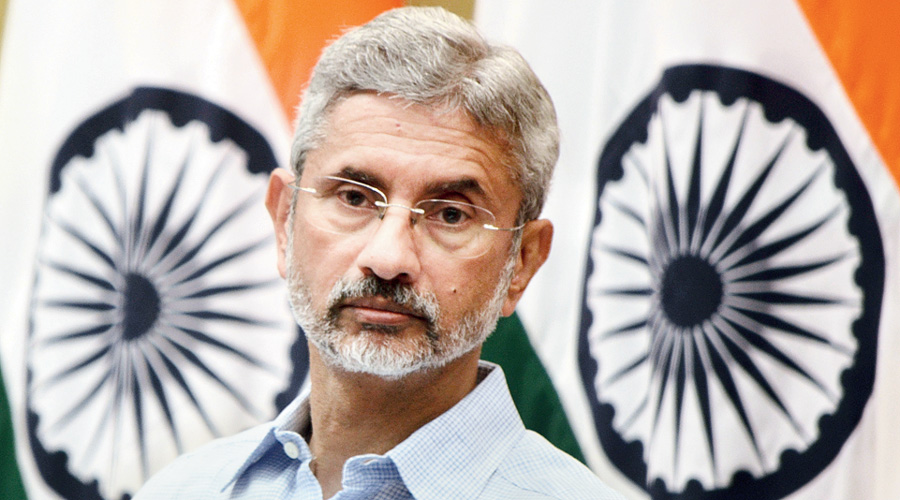External affairs minister S. Jaishankar on Tuesday stressed the need to respect the principles of non-interference in internal affairs and national sovereignty while addressing human rights violations, speaking at a time India’s record is coming under the scanner in various world capitals.
“We believe that violation of and gaps in implementation of human rights should be addressed in a fair and just manner, with objectivity, non-selectivity, transparency and with due respect to the principles of non-interference in internal affairs and national sovereignty,” Jaishankar said.
The minister was addressing the high-level segment of the 46th session of the Human Rights Council. He fell back on India’s past record in the global promotion and protection of human rights essentially iterated a stated position of the external affairs ministry.
But the statement assumes significance given the frequency with which New Delhi has had to push back on comments from world capitals on human rights issues over the past couple of years.
“India has always played an active role in global promotion and protection of human rights. Our strong commitment to the welfare of entire humanity, inspired by our civilisational ethos of ‘Vasudhaiva Kutumbakam’ or ‘the world is one family’, has provided the very foundation on which our constitutional and legal framework of human rights has been built.
“Our approach is based on our own experience as an inclusive and pluralistic society and a vibrant democracy. Our Constitution has enshrined basic human rights as fundamental rights, guaranteeing civil and political rights, stipulating provisions for progressive realisation of economic, social and cultural rights. These continue to evolve through legislation by Parliament, progressive interpretation of laws by the judiciary and active participation of civil society and citizens.”
Without referring to any of the criticism that has been coming the Narendra Modi government’s way on human rights, Jaishankar sought to assure the world that India “remains steadfast in our commitment to take all the possible steps to ensure fullest enjoyment of basic human rights of our people, including inclusive and sustainable development”.
India is building a better and fairer society at home; it is also contributing to a better and fairer world, he added for good measure, drawing attention to some of the Modi government’s flagship policies and also the Vaccine Maitri diplomacy through which Covid jabs are being sent to several countries.
This apart, Jaishankar pitched terrorism as one of the gravest threats to humankind. “It is a crime against humanity and violates the most fundamental human right — namely ‘the right to life’.
As a long-standing victim, India has been in the forefront of the global action against terrorism. This is possible only when there is a clear realisation, including in bodies dealing with human rights, that terrorism can never be justified, nor its perpetrators ever equated with its victims.”
Just last week, special rapporteurs (SRs) of the Human Rights Council had voiced concern that the constitutional changes made in Jammu and Kashmir could undermine minorities’ rights. It had drawn a sharp response from the government, which billed their conclusions as “inaccurate assumptions” and “deliberately timed” to coincide with the visit of foreign envoys to the Union Territory.
India took the position that the rapporteurs’ statement calls into question the larger principles of objectivity and neutrality that the SRs are mandated by the Human Rights Council to adhere to. “We expect the SRs to develop a better understanding of the issues under their consideration before jumping to hasty conclusions.…”











